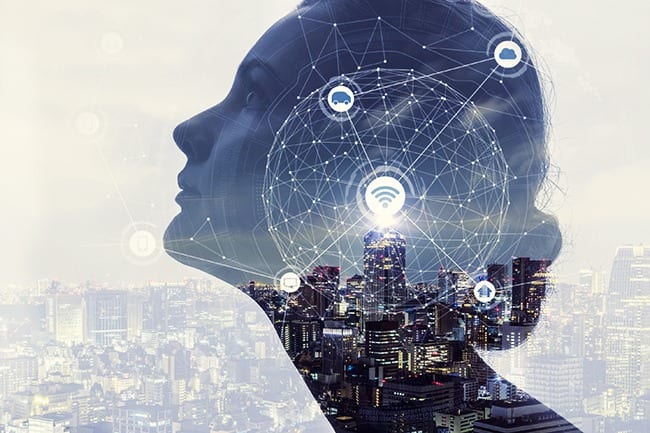
Editor: Vlad Rothstein | Tactical Investor
Artificial Intelligence Systems Helps Predict & Prevent Suicides
Suicide is a growing public health concern. In Canada, 4,000 lives are claimed by suicide each year — that is 10 lives per day. For every one of these suicide deaths, there are five people hospitalized following self-injury, 25 to 30 suicide attempts and seven to 10 people affected by each tragedy, according to an analysis by the Public Health Agency of Canada.
Could Artificial Intelligence Systems or intelligence demonstrated by machines, possibly help to prevent these deaths?
Engaging Article Worth Exploring: Next Stock Market Crash Prediction: Hype Or Hope
AI predicts suicide rates
In early 2018, the Public Health Agency of Canada partnered with Advanced Symbolics, an AI company based in Ottawa, for a pilot project. This company had previously made successful predictions about Brexit, Trump’s presidency, and the results of the 2015 Canadian election.
A novel approach to therapy involves the use of conversational bots, also known as chatbots, which are computer programs designed to simulate human-like conversations through voice or text responses.
Chatbots have the potential to provide psychological interventions for depression and anxiety based on cognitive behavioural therapy (CBT). These chatbots can tailor their interventions to the emotional state and clinical needs of individual patients, as they respond uniquely to the dialogue presented. Users have found these models to be user-friendly, and the chatbots’ adaptive responses have received positive reviews.
Suicide is influenced by various factors, including psychosocial, biological, environmental, economic, and cultural elements. AI can be utilized to explore the connections between these factors and the outcomes related to suicide. Full story
Artificial Intelligence Systems are Learning To Predict & Prevent Suicide
Over the years, Facebook has heavily invested in artificial intelligence fields such as machine learning and deep neural networks to enhance its primary business of personalized advertising. However, recently the company has redirected some of its AI tools towards a more commendable objective: preventing suicide attempts. While there is a genuine intention behind this effort, it is also driven by the need to maintain a positive brand image, as broadcasting suicides on Facebook Live is not in line with the platform’s values.
Artificial intelligence provides the potential to accurately identify individuals who may be prone to suicide, enabling early intervention long before thoughts turn into actions. A recent study, scheduled for publication this month, demonstrated that machine learning can predict with an accuracy of 80 to 90 percent whether someone may attempt suicide up to two years in advance.
By utilising anonymised electronic health records from 2 million patients in Tennessee, a team of researchers at Florida State University has employed algorithms to identify the most effective combination of factors that can predict suicide attempts. These factors include variables such as prescriptions for pain medication and the frequency of emergency room visits each year.Full Story
Google Artificial Intelligence Predict Peoples’s Death Date with 95% accuracy
AI opens a new frontier for suicide prevention
In the early hours of the morning, a distressed teenager shares a post on social media expressing thoughts of self-harm. While her friends and family are asleep, an algorithm promptly responds by providing links to round-the-clock support services.
Under a contract, Advanced Symbolics will collaborate with the government to define the various forms of “suicide-related behaviour,” ranging from thoughts and threats to actual attempts. The company will then conduct market research to identify patterns of online behaviour associated with these behaviours. For instance, they will explore whether individuals who engage in self-harm tend to discuss it on platforms like Twitter.
Based on the research findings, a three-month pilot project will be initiated to monitor online conversations related to suicide. Following this period, the Public Health Agency of Canada will evaluate the usefulness of continuing the surveillance efforts for ongoing suicide prevention.
The same technology previously employed by the company successfully predicted election outcomes in Canada, the United States, and Europe. Notably, it accurately forecasted the famous vote breakdown in the 2016 US presidential election with an impressive margin of only 0.7 percentage points.
In November, Facebook introduced an Artificial Intelligence Systems that aids in predicting and preventing suicides. This system scans posts and live videos to identify any indications of self-harm or suicide threats, alerting a team of human reviewers. Additionally, Facebook stated that its AI technology has successfully detected and removed 99% of posts associated with terrorist groups such as ISIS and Al Qaeda before users even report them, and in some cases, even before they are published on the platform. Full Story
Other Articles of Interest
Good Time To Buy IBM or Should You Wait? (Mar 15)
Is the Bitcoin Bull Market dead or just taking a breather? (Mar 8)
Is this the end for Bitcoin or is this a buying opportunity? (Jan 24)
Stock Market Insanity Trend is Gathering Momentum (Jan 10)
Is value investing Dead (Jan 9)
Irrational markets and Foolish Investor: perfect recipe for disaster (Jan 5)
Stock market Crash Myths and Realities (Jan 3)
Bull-Bear Markets & Arrogance (Jan 1)


